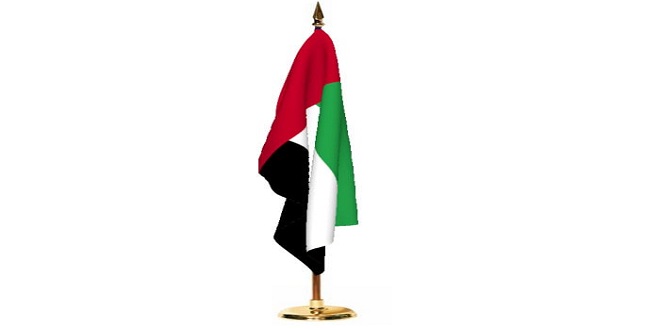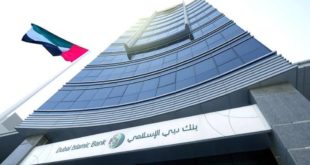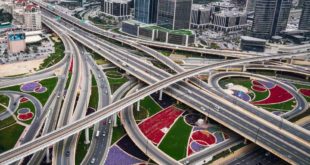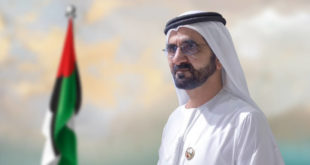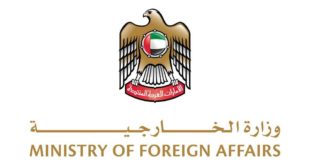Media IN Abu Dhabi 29-05-2019
The UAE is ranked first regionally, and entered, for the first time, the top 5 globally, according to the IMD World Annual Competitiveness Report 2019 released on Tuesday.
The Switzerland-based think tank said in its annual report that the UAE jumped from the seventh place last year to the fifth position in 2019, thanks to improvements in government and business efficiency indices as well as technological and scientific infrastructure.
The UAE has recorded improvement in its competitiveness for the third consecutive year, rising from 15th place in 2016 to its current ranking this year. Among key indices, rating for government efficiency improved from fourth to second position, business efficiency from second to first position and infrastructure improvement from 36th to 32nd position.
“We have embarked on the competitiveness journey 10 years ago and the UAE today is ranked first in the region and fifth globally. Competitiveness is an endless journey. leading and top positions go always for those who spare no effort to make landmark achievements and milestones,” His Highness Shaikh Mohammad Bin Rashid Al Maktoum, Vice-President and Prime Minister of the UAE and Ruler of Dubai.
The UAE has been rated best and first in entrepreneurship, international experience, digital transformation of firms, redundancy costs, overall productivity, agility of companies, working hours, use of big data and analytics, relocation threat of business and resilience of economies, among others.
“We will not stop developing our national competencies, government services and infrastructure. We want the world’s best for our people and for all residents in the UAE,” said Shaikh Mohammad.
The UAE has recently announced long-term visas and permanent residency for expatriates as well as amended and cancelled 1,500 government services for different public departments which would further improve the country’s competitiveness and ease of doing business rating.
Christos Cabolis, chief economist and head of operations at the Competitiveness Centre at IMD business School said these initiatives will surely contribute in attracting foreign highly-skilled talent to the UAE and therefore improving the talent pool from which private business draw from to improve their productivity. “Furthermore, this measure can be particularly effective in the next year considering the progresses achieved also in the reduction of bureaucratic procedures to start new businesses.”
Hamad Buamim, president and CEO of Dubai Chamber of Commerce and Industry, said that the new “Golden Card” system and the introduction of long-term visas complement other recent measures which are improving ease of doing business and competitiveness in the UAE.
“The strategic move is expected to contribute towards the UAE’s sustainable growth as it will enhance the country’s global appeal among foreign investors and top talent, adding that the new permanent residency system will likely result in a positive knock-on effect in several sectors such as education, property, and finance, while boosting the UAE’s position as a preferred startup hub,” Buamim said.
Ammar Al Malik, managing director, Dubai Internet City, said that there is a global race to get the best talent to each country between the US, Europe, India, China. “Talent is the game of the future. If you want an economy that is sustainable based on innovation and technology, you must have a good base. This policy will definitely put the UAE at par with all the other parties that are trying to get the talent.
In order to further improve the UAE’s competitiveness, he pointed out that the areas where the UAE can further improve upon are its technological infrastructure, scientific resources and environmental sustainability. “For instance, further progresses can be achieved with respect to the internet bandwidth speed, in the attraction and investments on R&D personnel, in reducing CO2 emissions and increasing energy production from renewable sources,” he added.
In the Middle East, Saudi Arabia achieved the biggest climb in the global rankings, up 13 places to 26th, despite a fall in its overall economic performance score. It registered the highest global ranking for investment in education and fared well in public and business finance. While Qatar rose four places to 10th position.
Globally, the top 10 most competitive economies were Singapore, Hong Kong, USA, Switzerland, UAE, Netherlands, Ireland, Denmark, Sweden and Qatar. Among other major global economies, Canada slipped from 10th place last year to 13th in 2019, China from 13th to 14th, Germany from 15th to 17th, Japan from 25th to 30th, France from 28th to 31st. While India improved one place to 43rd.
 Media ININ Economy We Trust
Media ININ Economy We Trust

